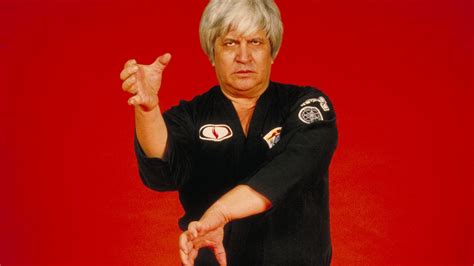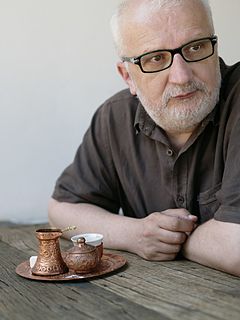A Quote by George Orwell
The essence of being human is that one does not seek perfection, that one is sometimes willing to commit sins for the sake of loyalty, that one does not push asceticism to the point where it makes friendly intercourse impossible, and that one is prepared in the end to be defeated and broken up by life, which is the inevitable price of fastening one's love upon other human individuals.
Related Quotes
Trusting people to be creative and constructive when given more freedom does not imply an overly optimistic belief in the perfectibility of human nature. It is, rather, belief that the inevitable errors and sins of the human condition are far better overcome by individuals working together in an environment of trust and freedom and mutual respect than by individuals working under a multitude of rules, regulations, and restraints imposed upon them by another group of imperfect individuals.
The history of human conduct does not warrant that exalted opinion of human virtue which would make it wise in a nation to commit interests of so delicate and momentous a kind as those which concern its intercourse with the rest of the world, to the sole disposal of a magistrate, created and circumstanced, as would be a president of the United States.
The average human being spends three years of life going to the toilet, though the average human being with no physical toilet to go to probably does his or her best to spend less. It is a human behavior that is as revealing as any other about human nature, but only if it can be released from the social straitjacket of nicety.
Peace or harmony between the sexes and individuals does not necessarily depend on a superficial equalization of human beings; nor does it call for the elimination of individual traits and peculiarities. The problem that confronts us today, and which the nearest future is to solve, is how to be one's self and yet in oneness with others, to feel deeply with all human beings and still retain one's own characteristic qualities.
I had the feeling of slipping down a smooth bottomless pit. It had nothing to do with Breuer and the people. It had nothing to do with Pat even. It was the melancholy secret that reality can arouse desires but never satisfy them; that love begins with a human being but does not end in him; and that everything can be there: a human being, love, happiness, life — and that yet in some terrible way it is always too little, and grows ever less the more it seems.
Refusing to be disillusioned is the cause of much of the suffering of human life. And this is how that suffering happens-if we love someone, but do not love God, we demand total perfection and righteousness from that person, and when we do not get it, we become cruel and vindictive; yet we are demanding of a human being which he or she cannot possibly give.
People come to the theatre in search of a real encounter with other human beings, and we must give them what they come for. Our capacity to do that is the measure of being human. And if the price is that we sometimes say something not very pleasant - well, that's precisely why people want us, in the end: because we speak the truth.





































